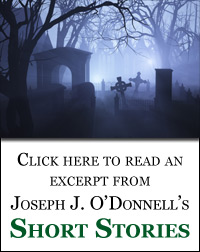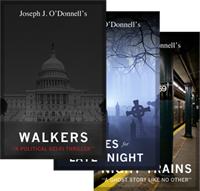TAEM- It is a pleasure, and an honor, for The Arts and Entertainment Magazine to be able to introduce one of the Hollywood’s Royal Family members to all of our readers. John Blyth Barrymore hails from one of the silver screen’s most prestigious families. John, your family’s name is world renowned and is a hallmark for all of those in the acting career. For our reader’s knowledge you are the son of John Drew Barrymore, half-brother of actress Drew Barrymore, grandson of the legendary actor John Barrymore and Dolores Costello, grand-nephew of legendary actors Lionel Barrymore, Ethel Barrymore, and Helen Costello.
Your mother is the famed television actress Cara Williams of the TV series ‘Pete and Gladys’ and ‘The Cara Williams Show’. You are also the nephew of actress Diana Barrymore and DeeDee Barrymore. Needless to say, your family must have influenced you and your career greatly. Tell us of your early days with your family and some of the fond memories that you recall with them.
JBB- Well I don’t remember ever meeting Diana so I really don’t know if I ever did or not, but DeeDee (Dolores Ethel Mae Barrymore Bedell) I knew quite well, or I should say know because she’s still with us.
TAEM- As a young man were you able to witness first hand many of your family’s acting while they were on a set. How inspirational was this for you?
JBB-My mother had two different TV series in the early ‘60s; “Pete and Gladys” was a spinoff of “December Bride.” In that show Harry Morgan’s character had a wife named Gladys that the audience never saw (like Norm’s wife in “Cheers”). P&G was a spinoff, it was a bit of an I Love Lucy clone in that both series featured whacky redheads married to clueless husbands. The second series was “The Cara Williams Show.” It was in color but had a pretty lame premise, the first show was by far the better of the two. I hung around on both sets sometimes; even though I was fairly young (maybe 7 or 8), I understood to be ultra quiet when they were rolling a take, etc. I also understood that Rock Hudson was gay and I knew what that meant. Welcome to Hollywood. Like any normal person I found the process of movie making incredibly boring to watch, but I was always a bit of a tech geek so I would sit up in the recording booth with the sound guys, or wander over to the set next door (Gunsmoke) where James Arness was a kind man who always had a few minutes for a bright kid. I thought of those days recently when Mr. Arness passed away.
TAEM- In your movie data base there was a story involving you and your father. Can you tell our readers about this event.
JBB-I have written an entire story about it, which has been published a couple of different times. (See attached.)
TAEM- Your own career began in 1967 with the TV-movie ‘Me and Benjy’. How exciting was this for you, and tell us something about this early beginning?
JBB-Actually my career began in the Sept. of 1954, when I was just 4 months old. My father was playing Moses on a Hallmark Hall of Fame live TV play, and I played either his child or him as a child, I’m not sure which, but I have a photo from that show. (See attached.)
Benjy and Me was my consolation prize. Norman Abbott, a friend of my mother’s, produced the Munsters and wanted her to let me play Eddie Munster. She wouldn’t allow it. She might have not been mother of the year (both of my parents were/are actors, which means they’re both children), but she got that one right, and years later I thanked her for having the good sense to NOT let me become a child actor.
TAEM- A few years later you starred in four episodes of one of the most popular television series, ‘Kung Fu’. Tell our readers about this experience and some of the actors that you played along side of.
JBB-Well that was a bit of an accident. They had hired some Tony award winning actor to play Zeke Caine in those last four episodes of the show, and he got fired the first day on the set. They needed a 15 year old, and fast. David suggested me; although I was 19 at the time I looked 15. I was up in Fremont, CA that day with David’s daughter, Calista. They got me on a plane and down to the set, gave me about the hardest scene in the four episodes, the one where my mother (played by Lois Nettleton) dies. I pulled it off and did the rest of the episodes. Lois may have been somewhere between 30 and 40 years older, than I was, but she was such an incredibly beautiful woman, both inside and out, that I
believe I had my first infatuation with an older woman during those weeks, though nothing came of it of course, I was still a virgin at 19. There were several guest stars in those episodes but the main one was Leslie Neilsen, and even though it would be decades before he began spoofing his own career with “Airplane,” he was every bit the jokester. He comes across as in that film and the Naked Gun movies; a great guy with a great sense of humor who never took himself, or show business, too seriously.
TAEM- Following this you played a role in ‘Baby Blue Marine’. Two years later you starred in ‘Feedback’ and ‘The One Man Jury’. What were the themes behind all theses productions, and tell us of the roles that you played in each of them?
JBB-Well I didn’t star in either of those films, I had bit parts in both, and a pretty small part in Baby Blue Marine as well. You see I was living with David Carradine and Barbara Hershey (she was Barbara Seagull back then), and David was a successful actor, the biggest star on TV, so I pretty much just behaved as he did, essentially strangling my film career in the crib. One of the reasons I wound up doing a lot of Shakespeare on stage later on; it was the only place I could get really good parts, even if it was for no money.
The “Baby Blue Marine” job came about because David was mad at me over my flirtation with his daughter Calista. He was giving me a haircut and though I didn’t realize it until he was done, gave me the full military buzz cut. When my agent saw it he sent me in for that film since he couldn’t send me in for anything else until it grew back, and the director pretty much gave me the part because I already had the haircut and I couldn’t sing, which was what he wanted.
TAEM- In 1979 you played a vampire in one of our favorite genres in the movie ‘Nocturna’. Please describe this production for us and how different it was from your previous experiences before the camera.
JBB-Boy, this is such a great story that I’m hesitant to give it away before the fact. It was funny, believe me. If you press me I’ll tell you but I’d rather do it on the air.
TAEM- Television had a calling for you again, and you starred in another well-known series, ‘Lou Grant’. How did acting on a television set differ for you as compared to that on the silver screen?
JBB-Well I did more TV than films, at least bigger parts on TV than in films, mostly. I treated them the same. The films I was doing were pretty low budget, which meant they were moving fast, as they do in TV. I think the way I got the first Lou Grant was that I had been in for some other part in some other episode, and since I was a skinny red headed kid (never what was written in the script) I didn’t get that one, but when they needed someone to play the kid who plays the Leprechaun at the fast food joint the casting director remembered me and called me in. By then I had learned how to behave (not like David Carradine) so they called me in a season or two later to do another part, a better one, a scene with Nancy Marchaund.
TAEM- For the next few years you starred in a spate of productions that included ‘Full Moon High’, ‘Smokey Bites the Dust’, ‘Trick or Treats’, ‘Americana’, and ‘Hard to Hold’. Please tell us about this period in your life and the many different roles that you played in these productions.
JBB-Again ‘starred’ is an exaggeration; I had featured roles, except for “Smokey” where you could say I was the second male lead. How that entire movie came to be is another very funny story that gives some insight into why Roger Corman never lost a dime in show business. I think I should save that one too. You let me know.
 TAEM- You then found an interest in voice acting in the 90’s in such productions as ‘Cry-Baby’, ‘Crazy People’, ‘Rich Girl’, and ‘The Indian Runner’. How was this form of acting differ from others that you performed, and how did you like this new found passion?
TAEM- You then found an interest in voice acting in the 90’s in such productions as ‘Cry-Baby’, ‘Crazy People’, ‘Rich Girl’, and ‘The Indian Runner’. How was this form of acting differ from others that you performed, and how did you like this new found passion?
JBB-I had given up acting 10 years earlier. I had a drug problem in the early and mid 1980s, a ‘bad patch’ if you will. Everyone in my family has had a bad patch, my sister Drew was the only smart one, she got hers over before she was even 18. I finally had enough of that madness and regained control of my life. A friend of mine ran a loop group, knew I needed to make some money and called me in for a day. It turned out I was very good at it; I could talk extemporaneously about almost anything and I was also good at the timing part; matching another actor’s lips for voice replacement. Those last 8 years before I moved out of L.A. was the only time I made good, steady money as an actor, and it was all voice work. I loved it. I didn’t have to audition, I didn’t even have to shave. I could get the sound editors and post supervisors out early and that’s what mattered. It was really a great job. When I moved back to L.A. a couple years ago I discovered that nearly everyone I had worked with had retired, or I would be doing it now.
TAEM- During this same period you also acted before the camera in the productions of ‘Solar Crisis’, ‘The Bonfire of the Vanities’, and ‘Ted & Venus’. Did you adjust easily between these two callings?
JBB-Yes. By then I had gotten a handle both on my life and on this acting thing. I was easy going and the directors, Richard Sarafian (Solar) and Bud Cort (Ted) were great guys who were also very easy going and easy to work with.
TAEM- For the next three years the role of a voice actor found you in a number of productions. These included: ‘Landslide’, ‘Love Crimes’, ‘A House in the Hills’, and multiple voice roles in ‘Twogether’. You also worked in front of the camera during this period in ‘Mind Twister’, the video, ‘Fatal Justice’, and the film ‘Inner Sanctum II’. How did you separate the different personalities that you portrayed in all of these?
JBB-Hey, that’s the acting biz, you’re playing a different character every time, but ultimately there is no character, there are only lines on a page. It’s your character, the actor’s character, that has the task of performing the part, and broader one is as a person the bigger the range of parts they can play. All my life I’ve been absolutely driven by intellectual curiosity, I want to know everything about everything. It served me well both as an actor and during the 20 years I was writing software for many different kinds of companies.
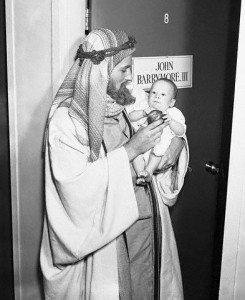 TAEM- We saw you in the following projects ‘Last of the Breed’, ‘Masseuse’, and ‘Hybrid’. Your latest work was for the new production, ‘Mansion of Blood’. Can you give us a sneak-preview behind the scenes of this, and when will our readers be able to see it?
TAEM- We saw you in the following projects ‘Last of the Breed’, ‘Masseuse’, and ‘Hybrid’. Your latest work was for the new production, ‘Mansion of Blood’. Can you give us a sneak-preview behind the scenes of this, and when will our readers be able to see it?
JBB-Masseuse, Hybrid and Inner Sanctum were all films directed by Fred Olen Ray; he made them fast and cheap; he took his playbook from Sam Arkoff and Roger Corman, even naming his company American Independent Productions (AIP, just like Arkoff). Hybrid was made in six days; I had a big part but got killed off on page 30 something, so I worked 3 of them. Mansion was another low budget film, the director, Michael Donohue also took a bit of the Ray/Arkoff/Corman approach, ‘make it fast and cheap, but make sure you have a movie in the can, and you can’t lose money’. Go to the American Film Market and there’s so much demand for product around the world that you will make your money back, and much more. The biggest change to me was the technology; not only have the eliminated film (the single biggest expense in the films Fred Ray made), but I was completely blown away at what’s possible. I showed up the first night and the scene was LOW room light. I said, “You can really shoot in this much light?” The DP let me look in the monitor of the camera and you can not only do it, the detail is fantastic. It’s really a new world now.
TAEM- John it has been an honor and a pleasure to be able to have The Arts and Entertainment Magazine be able to interview you for our many readers, and we hope that you will share all your upcoming roles with us in the years to come. We wish you much luck in all that you do and sincerely thank you for the time that you spent with us.
Please share the story on Facebook, or donate to support our efforts!



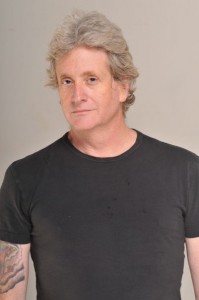














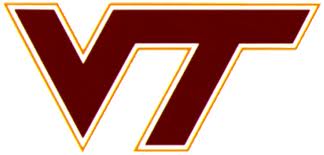







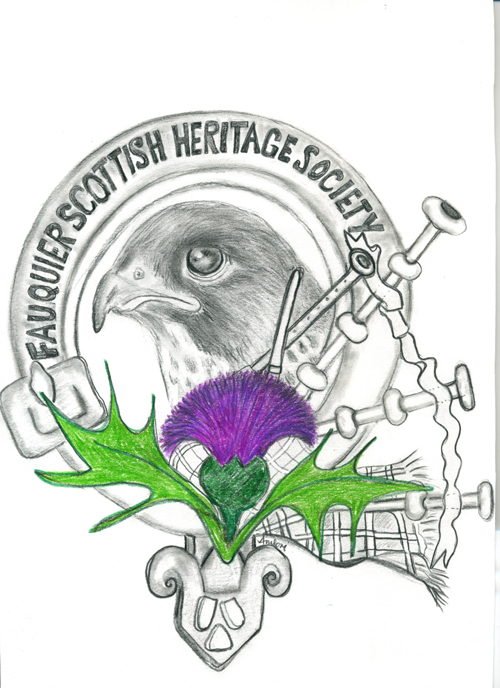
.jpg)


















